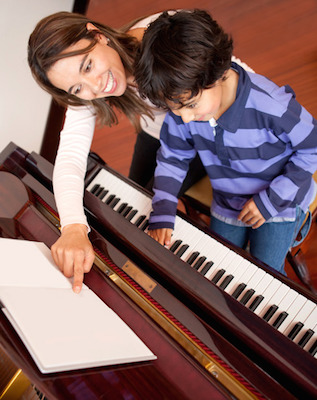Is there such a thing as the perfect piano lesson?
The answer, most obviously, is no. After all, there are many approaches to playing the piano, both from the instructor and from the learners point of view. What works for one won’t necessarily work for another.
Still, as a piano teacher, it’s important to structure the lessons you teach. It’s important to give your student a well-rounded approach to piano playing. And for most teachers, structure is a part of the deal.
A thirty-minute lesson will often include warm-ups, technical work, repertoire, maybe some piano games, even a little ear training. And it’s often structured five minutes here, five minutes there.
In some cases, that works. But sticking to that every day of the year can leave both you and your student feeling a little board.
Structure ever month differently
March can bring on anxiety from upcoming recitals. July can be relaxed and hassle-free. September can bring about new things, both from school and changing seasons.
So why structure your piano lessons in the same manner? If a student is overwhelmed and is focused on an upcoming recital, press structure in helping them with performance skills. If they are relaxed and in a vacation mindset, games and improv work can be a welcome relief.
Tie lessons to the student, not a training schedule
For teachers in a classroom, establishing one schedule to teach the entire class is a must. But if you teach one student at a time, your teaching plan can adjust with every student that walks in. Some students may learn best from playing games. Some students may be completely obsessed with repertoire. Find a way to capitalize on each of their interests and cater specifically to them.
Structure every lesson with excitement levels
There are only a certain number of things that can be accomplished in a short time frame. Instead of stopping and moving to another topic, take the lead from the student. Are they having fun with an activity? Let them do more of it. Are they bored? Move on. Never feel you “must” do anything. Do what works.
Look for alternatives all the time
When was the last time you tried something new? Have you grabbed a book to learn more about piano improv? Have you downloaded an app and tried a game? Learning the piano is always changing, always growing. Which means as an instructor, it’s important to change and grow too. Find new things that work. Eliminate things that don’t. The more you cater to the individual needs of your students, the more they’ll enjoy working with you.


